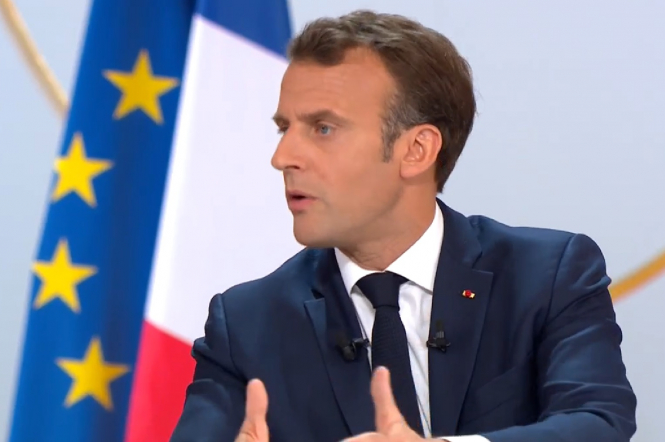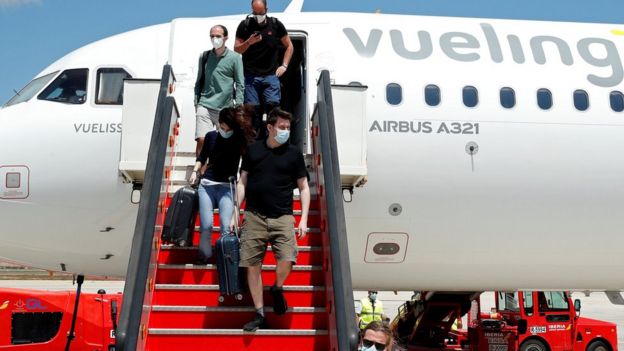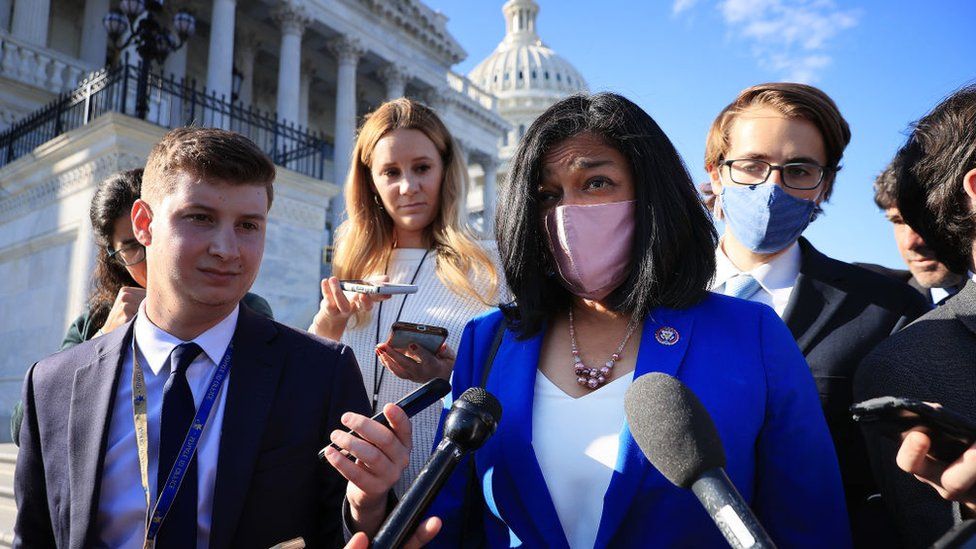Coronavirus: France announces significant lifting of restrictions

French President Emmanuel Macron has announced a number of coronavirus restrictions are being lifted.
From Monday cafes and restaurants can open across France and travel to other European countries will be allowed.
People will also be able to visit family members in retirement homes, which have been hit particularly hard by the Covid-19 outbreak.
It comes as a number of other countries in Europe re-open their borders between EU countries on Monday.
In a televised address, Mr Macron said France had won its "first victory", but warned the virus could return.
"As soon as tomorrow we will be able to turn the page on this first chapter across all our territory," he said.
Restaurants, hotels and cafés were allowed to reopen in many parts of France earlier this month - provided distancing rules are observed.
Mr Macron confirmed that from Monday this would also happen in the Paris region, which recorded the highest number of cases in the country.
He also said that schools would reopen from 22 June - except for high schools.
However, the president added, "this does not mean that the virus has gone and that we can completely drop our guard. The summer of 2020 will be a summer unlike any other and we will need to watch the evolution of the epidemic to be prepared in case it comes back with renewed strength."
Which other EU countries are reopening their borders?
The European Commission encouraged all internal border restrictions to be lifted from Monday; however, only a small number of nations have announced they will re-open.
Belgium, Croatia, Switzerland and Germany fully open their borders on Monday, with traffic police and officials enforcing the restrictions no longer present.
The Czech Republic is allowing unrestricted travel to and from 26 states but is still banning people from Belgium, Portugal, Sweden and the UK.
Greece has opened its borders and is allowing travellers from farther afield such as Australia, New Zealand, Japan and South Korea to enter.
Italy already reopened its borders on 3 June as has Poland, which opened to EU travellers on 13 June.

Spain's Prime Minister Pedro Sanchez said the country would allow free travel with EU countries from 21 June, except for Portugal. However Spain is allowing German tourists to visit its Balearic Islands from Monday as part of a pilot scheme to boost its tourism sector.
Its border with Portugal remains closed until 1 July.
Austria will lift its restrictions on 16 June but a ban on travellers from Portugal, Spain, Sweden and the United Kingdom remains in place.
Sweden and Luxembourg never closed their borders.
France to hold delayed elections
Mr Macron confirmed that the second round of municipal elections, originally scheduled for March, will go ahead on 28 June.
But, he said, mass gatherings will need to remain "tightly controlled" because "they are the main occasions for spreading the virus".
The announcement means that all of mainland France will now be in the "green zone" virus alert level.
The overseas territories of Mayotte and French Guiana will rem
ain at the "orange" alert level. Both territories still have high numbers of cases, which are threatening to overwhelm their hospital systems.
More than 29,400 people have died of coronavirus in France, and the country has had almost 194,000 confirmed cases - although the number of new cases has slowed markedly in recent days.
President Macron first imposed a strict lockdown on 17 March. These remained in place until 11 May, when the country began to cautiously ease restrictions.
His latest announcement marks the most significant lifting of restrictions since lockdown began.









Comments